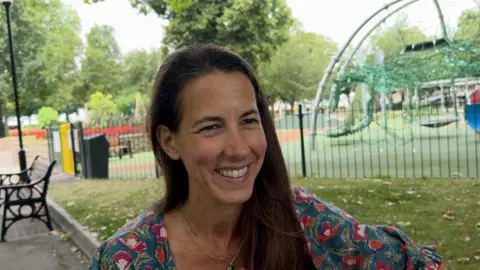 BBC
BBCA former teacher and union rep has said a decision to ban mobile phones in Jersey schools and colleges “may encourage children to actually talk to each other”.
The Government of Jersey said the ban would include break and lunch times and apply to all students up the end of Key Stage 4.
Ms Mauger from the NASUWT teacher union welcomed the change and said she spent much time in her teaching days telling students to put their phones away or down, and believed children would adapt.
She said: “I don’t think it will be easy.
‘Easy to enforce’
“I think initially while children are getting used to this ban, they will try every manoeuvre they can to retain and use their phone in school.
“If a school has a good behaviour policy, which all Jersey schools do have, then it should be easy for teachers to enforce.”
Outside of school, she believes it is the responsibility of parents to monitor how their children are using their phones, including social media.
The ban is set to come in from September, and she thinks it will help reduce the amount of “horrible things” seen by children online.

Local play champion and smartphone free childhood campaigner Emily Jennings said the parent community was heartened to see the guidance and recommendations for mobile-free schools.
Ms Jennings believes the next steps for the government was to work with mobile phone manufactures to create more non-smart mobile phones for children.
“Currently if you walk into a mobile phone shop on the high street, there are very few,” she said.
“Most of them are designed for old people with big buttons which are not cool for kids.”
She said the announcement by the Minister for Education and Lifelong Learning Deputy Rob Ward promoting non-smart phone ownership for children was a first for the UK.
“They may not bring the phone to school, and they may have the smartphone that their parents may have given them before, but the education minister has recommended that parents don’t buy their children a smart phone,” said Ms Jennings.
“There are safer phones for children that do not have internet on them.”
‘Win for childhood’
Ms Jennings said the ban of the devices at school was a “real win for childhood”.
“Children are free to play with each other in real life without distraction from dopamine devices is just extraordinary,” added Ms Jennings.
“This is a radical step and a real win for childhood.”



